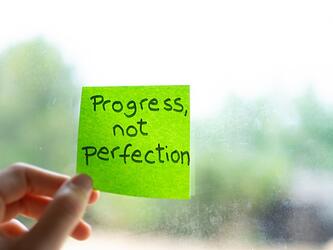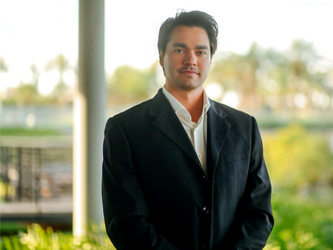The secret life of ideas
I was working in Factual programming research in the mid-90s when I was asked to work with the new editor of Top Gear. I was young, a little arrogant and thought it was a great gig, but I didn’t really watch the show and cars weren’t really my thing.
I hastily decided that we should increase audiences by targeting female viewers to a male-skewed show; with less rubber burning and more consumer news, pink cars and a Garfield. The audience figures dropped, Jeremy Clarkson left and I learnt a very hard lesson.
Because there are no shortcuts – great ideas happen if you take the necessary time to harness the three key creative resources: a mix of diverse people; a shared process to generate and evaluate ideas; and an open, inclusive environment.
In all industries, one of the most common misconceptions is that ideas only come from people labelled as ‘creative’. In fact, new research (Neuroscience of Creativity: Scientific American 2014 ) shows that there is no such thing as the archetypal left brained creative person versus the more right brained logical one; instead there are three neural networks at play.
Creative people have learnt a trick; they are better at quietening the Executive Attention Network – the logical part of the brain – to allow the Salience or emotional network to switch on the Imaginative Network behind the right ear. So to harness peoples’ imagination: cast your net widely, everyone has the potential to come up with new ideas and bring to life the emotions of an insight or brief.
My first experience putting creative thinking at the forefront of my working practice was when I was asked to lead a project to develop ideas for male viewers and got a chance to redeem myself for my Top Gear debacle. I sent a bunch of producers to spend an evening with target groups of men and they came back with tales of men ‘daring to close their eyes for as long as possible on motorways and turning their lights off in the dark on country roads’ Shocking? Yes, but aren’t you curious? That’s your salience network kicking in to get you wondering: why do it; what’s the need they’re fulfilling? And before you know it, you identify that men want a rollercoaster ride on TV and you reboot Top Gear, make SAS are you tough enough and other male adrenaline shows.
Of course, anyone in development knows that an idea is just the start. Research born in the Mad Men era of advertising identified a universal four-stage creative process: from brief, to ideas, development and implementation (Osborne & Parnes, Journal of Educational Psychology, 1959 ). All the rules of creativity apply, I am sure you already know them: break patterns; go for quantity; give positive criticism; and engage the heart. But what most textbooks miss is that revolutionary ideas require great passion, collaboration and belief.
If an idea is truly innovative, then it will inevitably get negative responses, push back or even fear. Working with creative teams on the BBC’s biggest brands; Blue Planet, the global strategy for Doctor Who, the Digital Olympics and recent development work for The Voice and Strictly has demanded as much influencing and persuading skills, as creative skill.
If you really want your ideas to happen, then don’t just focus on ideas or insights, start to focus on creating trusting environments for stakeholders, creative teams and commissioners.
Linda Green is director of Leading Creative Talent and former head of creative leadership, development executive and exec producer at the BBC.

We hope you enjoyed this article.
Research Live is published by MRS.
The Market Research Society (MRS) exists to promote and protect the research sector, showcasing how research delivers impact for businesses and government.
Members of MRS enjoy many benefits including tailoured policy guidance, discounts on training and conferences, and access to member-only content.
For example, there's an archive of winning case studies from over a decade of MRS Awards.
Find out more about the benefits of joining MRS here.













0 Comments